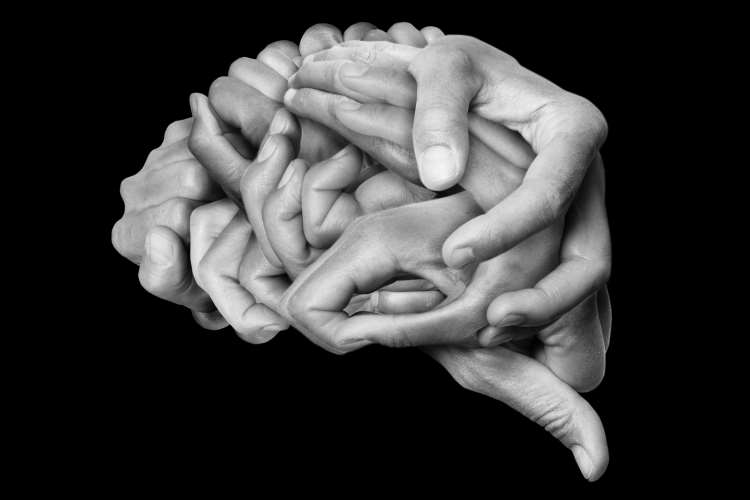When anyone has a predisposition to any illness, biochemical or otherwise, prevention is always better than cure. For example, wise people with a genetic predisposition to heart disease take preventative measures in their life, exercising regularly and avoiding certain foods. The same concept, although often neglected, can be applied by people with genetic predispositions to mental illnesses such as depression.
While depressions cause remains somewhat of a mystery, experts believe that there is a significant genetic basis to depression, with the illness running in families. It’s estimated that around 50% of the illness is attributed to genetic factors, while the other 50% is attributed to non-genetic factors. Whatever the percentage, there are some factors out of your control (the genetic side) and some factors inside your control (lifestyle, etc.). The latter being the one you should focus on.
I have wrestled with depression at various stages in my life. I may have a genetic predisposition to it, after all, it does run in my family. I cannot control this. What I can control though, is the lifestyle I lead and living in a way that prevents depression taking hold.
I call this my ‘low hanging fruit’. These are easy to reach habits and lifestyle choices I (try to) implement in my life to keep depression at bay and be a better human. Thankfully, picking these low hanging fruit can almost entirely eradicate depressive episodes, and fend it off when it tries to attack. I thought I would share what I have found works for me personally. Maybe it can help someone else.
Change Your Thinking – Stoicism/Cognitive Behavioural Therapy (CBT)

The thoughts we think have a strong influence on our behaviours and our emotions. They are all intertwined. The above is a positive because you can change the way you think. One of depression’s most relentless symptoms is the constant rumination. Brains get highjacked and caught in destructive and negative thought patterns. This is where applying the principal’s behind Stoicism, and Cognitive Behavioural Therapy (CBT) is effective.
Stoicism is a school of philosophy that arose out of Greece in the 3rd Century B.C., and Cognitive Behavourial Therapy is a highly researched and effective form of psychotherapy. Strangely enough, they share a lot of similarities. While engaging in CBT with a trained mental health professional is much more involved, merely applying the fundamental principles to your thinking daily is beneficial.
One of the core principles of both CBT and stoicism is summarised in the following quote by the Stoic philosopher Epictetus:
“Man is disturbed not by things, but by the views he takes of them.”
The above is a reoccurring theme in Stoicism and CBT. It’s based on the concept that our beliefs and perceptions are constructs of reality, not ”truths” that can be seen only one way. The fact that they are perceptions means they can be changed to form more productive patterns of thinking.
Learning to question and challenge distorted thoughts using the techniques found in CBT and at the heart of stoicism involves using evidence, facts, and logic.
Correcting these distorted thoughts also means focusing on the things that can be controlled, accepting the things that cannot and learning to see the way forward and around life’s obstacles, as opposed to seeing them as a roadblock.
This may seem too complex to be classified as ‘low hanging fruit.’ But really, what better place to start than your own mind? The fundamentals are simple.
If you want to go further down this rabbit hole, here are some resources for further reading, I would highly recommend them. I have the Daily Stoic on audiobook. Great to listen to on the way to work.
Books on stoicism:
- Meditations by Marcus Aurelius
- Letters From A Stoic by Lucius Annaeus Seneca
- The Daily Stoic by Ryan Holiday
Books on Cognitive Behavioural Therapy:
Body Over Mind

At one stage in my life, I counted calories, curled and chugged creatine with different motivations. But now, I do so primarily for the health of my mind and body. Exercise is something humans are designed to do more of, but modern sedentary society leaves us moving less and unhealthier and unhappier as a result.
Regularly getting out of your head and into your body does wonders as a protective layer against depression. Whatever it is, running, riding, lifting, playing sport, etc. evolution incentivises us to exercise, releasing a cocktail of endorphins to reward us. There is a lot of research to support exercises’ benefits for depression. It makes a lot of sense to do it regularly. When you feel depression starting to get a hold, get out and move. Get out of your head and into your body as much as possible.
As for supplements, there are only two that I take regularly.
Fish oil supplementation has research suggesting it’s comparable to some forms of pharmacological intervention when It comes to treating major depression. Although there is no substantial evidence to suggest that it can ward off depression or be effective at managing minor depression, I personally feel there is a benefit. Aside from that, there is a myriad of other health benefits to supplementing with it. Make sure when purchasing fish oil, you look for high EPA and DHA content.
I also use Vitamin D. Low levels of Vitamin D have also been associated with depressive symptoms. On top of this, one study showed a decrease in depressive symptoms in majorly depressed individuals. Aside from depression, there are also many other potential health benefits that Vitamin D supplementation brings.
Journaling – Capture Your Thoughts

Journaling is something I try and do every day. I go through phases, at times when everything’s great there is less to write about. During more tumultuous periods I can do it multiple times a day.
Getting stuck in your head, lost in the storm of thoughts swirling around can be detrimental to your mental health. It’s easy to get lost. Realising the benefit of grabbing these thoughts and putting them on a piece of paper, on a regular basis, has been an important tool for myself in being a better human. It allows detachment from the thoughts, seeing them with much more clarity in order to find a way forward. Patterns and solutions become much easier to sight. You gain a greater understanding of yourself and process your emotions more efficiently.
With that said, I have found that there are productive and unproductive ways to journal. If you use the journal as an extension of your own self-immersion, or just as a vessel that further perpetuates your negative thoughts, it makes things worse. You end up wallowing in negativity and self-pity. Journaling, I find, is most beneficial when it’s focused on solutions and gaining a greater understanding of yourself, your behaviours, emotions, and values.
As for the modality, pen and paper are great. I like using a cloud service like Evernote, that way they are stored forever and they can be accessed whenever and wherever.
Meditation – Choice

Meditation has had a resurgence in recent years. The stigma of meditations association with spirituality and mysticism is slowly fading, and its many benefits are being discovered by a wider array of people. Meditating is something that I have always wished I did more. Recently, I have started doing it more, and I see small benefits already.
The main benefit of meditation (or any mindfulness practice) alluded me for a long time. The benefit is simply learnings the ability to not be a slave to your thoughts and emotions. Where normally an event would provoke a knee-jerk, automatic thought response that you had no control over, you find yourself beginning to have a choice in how you react to it. It’s like going from a dictatorship to democracy regarding how you are governed by the thoughts and emotions that arise in your consciousness.
Meditations benefit is particularly applicable to the emotions and ruminations that arise in depressive episodes, and there is research to support this. Negative thoughts and emotions no longer have complete control over where they take you. Choice and control over how you react to the thoughts in your own head is a skill set that benefits every aspect of your life.
I am no expert on the different forms of mediation by any means. I use the app Calm that provides great guided mindfulness practices.
Philosopher, author, and neuroscientist Sam Harris has a great book called Waking Up on the benefits of meditation and separating it effectively from the spirituality religious it is often intertwined with.
In Conclusion
If I can say anything about battling mental illness, I will say this: you inherit certain genetic traits that you have no control over. You get raised a certain way, you have no control over this either. These factors may predispose you to mental illnesses like depression. But you aren’t stuck. You aren’t broken. There is a lot that is in your control and you can rewire who you are, at any stage, at any age. Never give up and never stop working on yourself. Live smart and never stop learning. Putting simple things like these in place in your life can ensure you fall down a lot less and get back up a lot faster when you do.
Hopefully, there is something in here you may find useful.
-Brent
Well written, I like it 👌🏻
Brent this is amazing!!
You need to write a book. Truly an inspiration!!
Thanks, Mel! Glad you liked it.
Great article, as someone who suffers from depression and already implements a few of the suggested points, I can say they’ve helped me. I’m definitely going to try some of the others mentioned.
Thank’s Stu, I appreciate it.